The Browns crushed the Eagles at Cleveland’s Municipal Stadium 47-13 to drop the Birds record to oh-and-eleven.
The date was November 24, 1968.
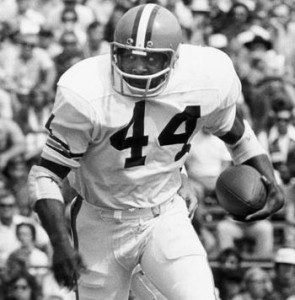 Leroy Kelly – a graduate of Philly’s Simon Gratz High – ran for 108 yards and two TDs for the Browns. He also rubbed salt in the wounds by throwing a 34-yard pass to Paul Warfield for another score.
Leroy Kelly – a graduate of Philly’s Simon Gratz High – ran for 108 yards and two TDs for the Browns. He also rubbed salt in the wounds by throwing a 34-yard pass to Paul Warfield for another score.
That gave the Birds the worst record in the NFL. It was Joe Kuharich’s fourth year at the helm – and, mercifully – it would be his last.
But there was a still huge ray of hope shining over the team’s destiny. That hope existed because the Buffalo Bills also lost that day – losing 34-32 to the Denver Broncos and dropping their record to 1-10-1. If you’re counting, the Bills had played an extra game because they were one of six AFC teams that started the season a week early. And, please note, the NFL still played just 14 games per season back then.
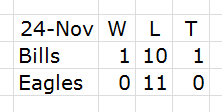 The Bills record was better because they beat the New York Jets 37-35 in their fourth game of the season and tied the Miami Dolphins 14-14 in their sixth game. Yes, the Bills were a bad football team, but the Eagles were even worse.
The Bills record was better because they beat the New York Jets 37-35 in their fourth game of the season and tied the Miami Dolphins 14-14 in their sixth game. Yes, the Bills were a bad football team, but the Eagles were even worse.
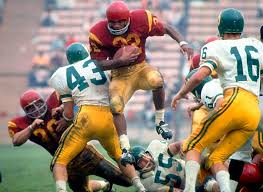 But having the worst record was good news because the top player coming out of college was USC’s O.J. Simpson – a two-time All-American running back who also won the Heisman Trophy. All the Birds had to do to land O.J. in the NFL draft was to lose the three games remaining on their schedule. With a scoring differential of minus 166 points – scoring only 144 points while allowing 310 points – that didn’t appear to be a problem.
But having the worst record was good news because the top player coming out of college was USC’s O.J. Simpson – a two-time All-American running back who also won the Heisman Trophy. All the Birds had to do to land O.J. in the NFL draft was to lose the three games remaining on their schedule. With a scoring differential of minus 166 points – scoring only 144 points while allowing 310 points – that didn’t appear to be a problem.
This Eagles team featured Norm Snead at quarterback, Tom Woodeshick and Izzy Lang running the ball, and Ben Hawkins and Gary Ballman catching passes. The defense had a trio of decent D-backs in Al Nelson, Nate Ramsey, and Joe Scarpati, but that was about it.
The next week of the season was Thanksgiving week and both the Eagles and Bills were playing on Turkey Day. The Eagles went on the road as decided underdogs against the (3-6-2) Detroit Lions.
The Eagles offense managed only one Sam Baker field quarter in each quarter – but the Eagles defense somehow pitched a shutout. They held the Lions to 102 yards on the ground and picked off three Greg Landry passes – one each by Al Nelson, Nate Ramsey, and Harold Wells.
Landry went 7-for-15 for just 66 yards and no TDS.
Other than not throwing any interceptions, Norm Snead’s numbers were worse. He went 6-for-15 for just 55 yards and no TDs.
The 12-0 victory upped the Eagles record to 1-11. Later in the day, the Bills lost 13-10 to the Oakland Raiders to drop their record to 1-11-1 and put the two teams in a virtual tie for the worst record.
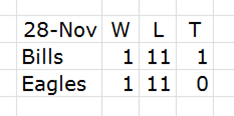 But with a game in-hand, the Eagles held their own fate. If they lost their last two games, they’d finish 1-13. If the Bills lost the lone game remaining on their schedule, they’d wind up 1-12-1 – which was a better record – and the Eagles would get the first pick in the draft.
But with a game in-hand, the Eagles held their own fate. If they lost their last two games, they’d finish 1-13. If the Bills lost the lone game remaining on their schedule, they’d wind up 1-12-1 – which was a better record – and the Eagles would get the first pick in the draft.
On the following week, the Bills played on Saturday and lost 35-6 to the Houston Oilers – ending their season at 1-12-1.
On Sunday, the Eagles were back home in Franklin Field to face the (3-8-1) New Orleans Saints. I was at that game. But I must tell you, tanking games to move up in the draft was a foreign concept back then. There were no Sam Henke’s around. So, myself, as a lifelong Eagles fan, I wanted to Eagles to win. But there was a counter-sentiment that hoped the Eagles would lose and get a shot at O.J. Simpson. So the atmosphere at Franklin Field that day had a Twilight Zone feel to it. I was caught between wanting the Eagles to win – yet knowing that we’d get O.J. Simpson if we lost.
Billy Kilmer gave the Saints a 7-0 first-quarter lead when he hit Jimmy Hester for a four-yard TD.
The teams scored three touchdowns in the second quarter:
• Norm Snead hooked up with Gary Ballman for a 55-yarder to even the count at 7-7.
• Billy Kilmer ran one in from two yards out for the Saints.
• Norm Snead found Ben Hawkins from 14 yards out – but Sam Baker missed the PAT and the Eagles trailed 14-13 at the half.
In the third quarter, Charlie Durkee hit a chip-shot from the ten to bump the Saints lead to 17-13. The Eagles scored when Larry Conjar – a rookie running back out of Notre Dame and Bishop McDevitt High – tackled Saints punt return Charlie Brown in the end zone for a safety.
So the Eagles entered the fourth quarter trailing 17-15.
The Eagles defense shut down the Saints in the final period.
Meanwhile, Norm Snead found Ben Hawkins on another TD pass – this one from 23 yards out – and Tom Woodeshick bulled his way through the line of scrimmage and ran to daylight from 30 yards out to put the game away at 29-17.
On a personal note, I didn’t know Tom Woodeshick at the time. But Woody and I became good buddies a decade or so later and we discussed that game several times. All he cared about was winning that game and O.J. Simpson be damned.
The win improved the Eagles record to 2-11 and cooked their goose in regard to getting O.J. Simpson. The win also tied the Eagles with the Atlanta Falcons for the second-worst record – meaning the final week of the season would decide who chose second and who chose third.
The Eagles finished the season at home against Joe Kapp and the Minnesota Vikings. Both Kapp and Snead threw for two touchdowns without an interception, but Kapp’s two-yard quarterback sneak gave the Vikings a 24-17 win and dropped the Eagles final record to 2-12.
The Falcons lost 14-12 to the San Francisco 49ers. That gave the Falcons and Eagles identical 2-12 records, but the Eagles held the tie-breaker – giving them a better record but yielding the second pick in the draft to the Falcons.
The first round of the draft was held at the Belmont Plaza in New York City on January 28, 1969:
• Coming as no surprise, the Buffalo Bills selected O.J. Simpson with the first pick – and O.J. would go on to become one of the greatest running backs in NFL history and winning the rushing title four times.
There are six running backs who have run for over 2,000 yards in a season. O.J. Simpson was the first to do so – in 1973 – and he’s the only one to do so while playing a 14-game schedule.
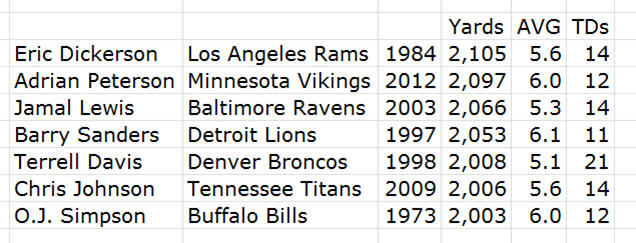 • With the second pick, the Falcons selected Notre Dame All-American tackle George Kunz – who became the premier offensive lineman of his era. Kunz played in the NFL for 11 seasons – six years with the Falcons and five years with the Baltimore Colts – and he played in eight Pro Bowls.
• With the second pick, the Falcons selected Notre Dame All-American tackle George Kunz – who became the premier offensive lineman of his era. Kunz played in the NFL for 11 seasons – six years with the Falcons and five years with the Baltimore Colts – and he played in eight Pro Bowls.
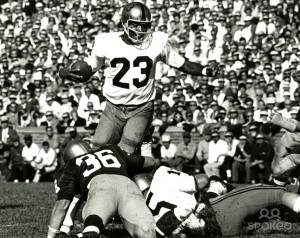 • With the third pick, the Eagles selected Purdue All-American running back Leroy Keyes. During his rookie season, Keyes started 11 games, but he rushed for just 361 yards and three TDs – 3.0 yards/carry – and caught 29 passes for another 276 yards and no TDs. He also ran back nine kickoffs for 200 yards.
• With the third pick, the Eagles selected Purdue All-American running back Leroy Keyes. During his rookie season, Keyes started 11 games, but he rushed for just 361 yards and three TDs – 3.0 yards/carry – and caught 29 passes for another 276 yards and no TDs. He also ran back nine kickoffs for 200 yards.
Underscoring the fact that the Eagles got the Booby Prize, Leroy Keyes dressed for only three games the following season.
The Eagles switched him to strong safety in 1971 – his third NFL season – and he intercepted eight passes over two seasons before being dealt to the Kansas City Chiefs in 1973. He played just three games that season and retired.
• With the fourth pick in the draft, the Pittsburgh Steelers selected a defensive tackle from North Texas State by the name of Joe Greene.
Enough said.
Please, Chip Kelly and Ed Marynowitz, no Booby Prize in this year’s draft.
Barry Bowe is the author of Born to Be Wild, 1964 – The Year the Phillies Blew the Pennant, and 12 Best Eagles QBs.
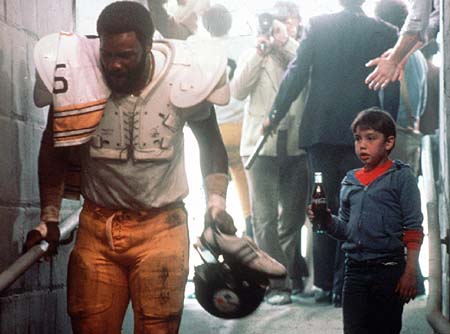
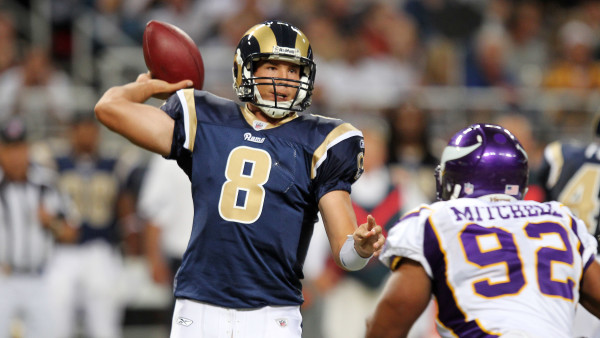

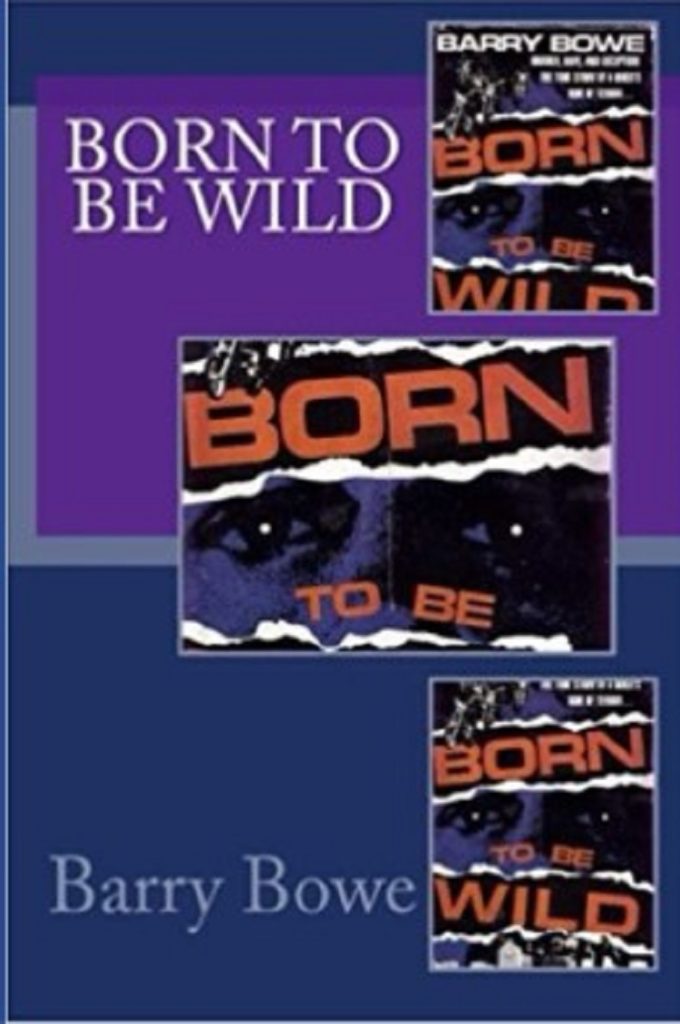


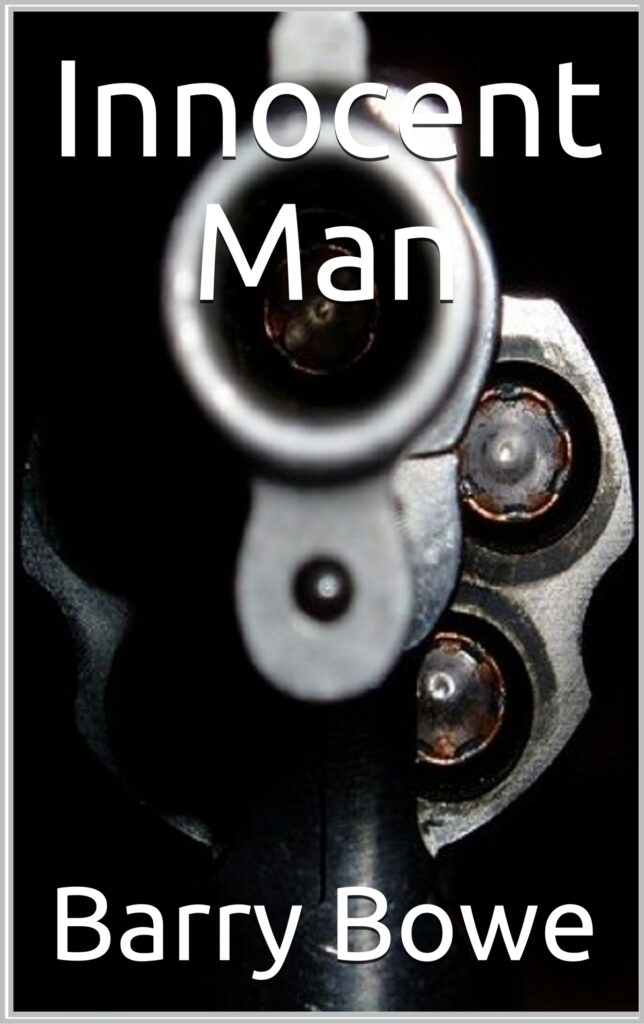

Comments
No Comments